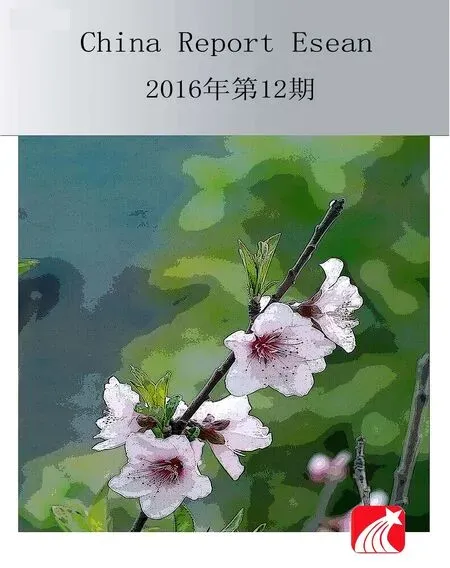Lost in Vietnam: A Co-Production Love Comedy
By Wang Fengjuan
Lost in Vietnam: A Co-Production Love Comedy
By Wang Fengjuan
As the 2017 Chinese New Year draws near, many young singles have already begun to worry that when they go home for the holiday, their parents may incessantly urge them to hurry up and get married. Those seeking encouragement to find a partner can look toLost in Vietnam, a comedy shot in 6K resolution which depicts the story of a young Chinese man who falls in love with a young Vietnamese woman.
The film includes the participation of famous Vietnamese band HKT and is an intriguing take on the lives of young people in China and Vietnam today.
The first commercial film shot by a Chinese-Vietnamese team,Lost in Vietnamfeatures funny storylines and unique landscapes in addition to the stunning culture and cuisine of Southeast Asia.
First Sino-Vietnamese Comedy Co-Production
The Chinese filmLost in Thailand, released in 2012, became a huge hit in both China and Thailand. A similar travel film starring both Chinese and Vietnamese movie stars,Lost in Vietnampremiered in China on Nov. 25, 2016.
Directed by Guo Xiang, the film features several places including China’s Nanning and Vietnam’s Da Gang, Nha Trang, Mui Ne and Ho Chi Minh City, but most of the film was shot on Hon Tam Island, a scenic resort featuring sunshine, hills, wharfs and beaches, as well as seawater with distinctive green and blue colors, in Nha Trang.
In addition to picturesque landscapes, the film also incorporates a plethora of Vietnamese elements such as unique clothing, motorcycles and street markets. Khánh My, who plays the female lead in the film, impressed the audience with her dignified golden-red costume. The film also depicts scenes such as Vietnamese women inAo Dai(a traditional costume in Vietnam) walking gracefully against the sea breeze and street markets packed with a variety of colorful food, drink and other items for sale. The beautiful natural scenery, distinctive cultural sights, and exotic music helped the film win favor with audiences soon aTher it hit cinemas in China.
In the past, China and Vietnam had little cooperation in the fields of film and television. In 2006, the two countries co-produced the filmHanoi, Hanoiwhich recounts the history of China-Vietnam friendship. In 2011, they joined hands to shootOperation Seahawk, a film about Chinese borderpolicemen fighting pirates. In addition, Vietnam imported and adapted several Chinese TV dramas and web series, includingMy Fair Princess,The Empress of China, Addiction, andFashion Is a Smile.
In the 1990s, Chinese TV dramas adapted from the Four Great Classical Novels of China (Roman of the Three Kingdoms, Journey to the West, Outlaws of the MarshandDream of the Red Chamber) were popular among Vietnamese. Even today,Journey to the Westis broadcast in Vietnam during summer holidays.
A Vietnamese student in China admitted that those Chinese TV series helped her learn the Chinese language.
“Chinese TV dramas, set in both ancient and modern times, have attractive storylines, and new episodes are quickly available to Vietnamese audiences,” she said.

Cast at the premiere of Lost in Vietnam in Beijing on Nov. 22, 2016.
In addition to picturesque landscapes, the film also incorporates a plethora of Vietnamese elements such as unique clothing, motorcycles and street markets.
A Bittersweet Love Story
Lost in Vietnamtells a story about how Pan Pasi (Joe Ma Tak-chung) traveled to Vietnam to court a local famous movie star played by Khánh My, with the help of Zhao Xiaoyang (Wang Dazhi), a matchmaker on the brink of bankruptcy, and Bai Xiaobai (Liu Liyang), a careless, unskilled female interpreter. This leads to a variety of comedic mishaps as the three-member team tries to accomplish a seemingly impossible mission.
In the process, Zhao bursts into tears when a cake explodes in his face, and Bai finds herself at the wrong end of a large number of embarrassing mishaps. Even so, Pan never gives up on his goal. In the film, the trio poses as HKT, a charade which works until they run into the actual band.
“I spend half of my life suf f ering embarrassments, and the other half creating embarrassments,” matchmaker Zhao says in the film. Every character is unique, and as they come together in the film, they create a hilarious story. In the course of helping others seek their true love, Zhao himself also falls in love.
The song “Roast, Roast, Roast”that HKT sings in the film has already been translated into Chinese by netizens and went viral online soon aTher its release. HKT is popular among Chinese netizens for their bizarre outfits and now has a large number of Chinese fans. ATher its debut in the film, the band is expected to enter the Chinese market.
Eyeing the Global Market
Many likenLost in VietnamtoLost in Thailandas both films depict hilarious adventures of Chinese people in Southeast Asia, thus boasting exotic appeal.Lost in Thailand, directed by Xu Zheng and starring Wang Baoqiang, Huang Bo and the director himself, grossed 1.2 billion yuan (US$170 million). The film established Xu Zheng’s reputation as not only an actor, but also a successful director.
Lost in Vietnamis a mid-budget movie with production costs of only 20 million yuan (US$2.9 million). However, it was named the Best Co-production of 2016 at the 2016 International Chinese Film Festival in Australia. Due to his outstanding performance in the film, Hong Kong actor Joe Ma Tak-chung was awarded Best Actor at the event.
Since the very beginning, the film has set its sights on the global market. Apart from China, it will be screened in Southeast Asia, Australia and North America. Producer Chen Yi is confident about the film’s future performance in the international market.
“Lost in Vietnamboasts a good story and fantastic acting,” he explains. “Though it doesn’t necessarily fit the tastes of mainstream Chinese audiences who prefer A-list actors and actresses, the film has still won favor from foreigners who think its storyline is funny and romantic.”
Zhou Xiaoyu of the MINIRAIN Cultural Media (Beijing) Company Limited, the film’s distributor, said that cooperation within a team composed of both Chinese and Vietnamese professionals was crucial to the film’s success.
“Lost in Vietnamis rich in Vietnamese elements, and half of its cast come from Vietnam,” Zhou said.“The film earned great support from its Vietnamese crew when it was shot there. Cultural collisions reflected in the film are new and intriguing to the audience.”
- China Report Asean的其它文章
- Should We Stay or Should We Go? What multinationals should look for as they decide to keep production in China or move it to ASEAN countries
- Tourism Set to Drive Indonesia’s Economy Forward
- Brunei Envoy Pays Tribute To the King of Boni
- Cycling in Hainan A New Avenue For Tourism
- Bambang Susantono: Infrastructure Development Requires Efforts From All Sides
- Singapore and China: Building on the Past and Opening a Way Toward the Future Exclusive interview with Singaporean Ambassador to China Stanley Loh

